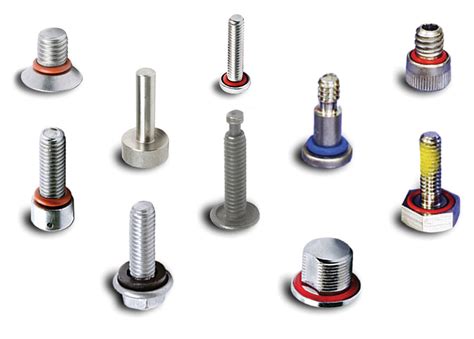High-tech fasteners have revolutionized the way modern industries operate, providing a wide range of benefits that enhance efficiency, productivity, and overall performance. From aerospace to automotive, and from construction to healthcare, fasteners play a critical role in holding things together. In recent years, there have been significant innovations in high-tech fasteners, driven by advances in materials science, manufacturing technologies, and digitalization.
The Importance of High-Tech Fasteners in Modern Industries
Fasteners are an essential component in various industries, including aerospace, automotive, construction, and healthcare. They are used to join two or more parts together, providing a strong and reliable connection. High-tech fasteners have become increasingly important in modern industries due to their ability to provide high strength, corrosion resistance, and durability. They are also designed to withstand extreme temperatures, vibrations, and other environmental factors.

The Evolution of Fastener Materials
The development of new materials has been a significant driver of innovation in high-tech fasteners. Traditional fasteners were made from steel, aluminum, or other metals, which were often heavy, prone to corrosion, and limited in their strength. Modern fasteners are now made from advanced materials such as titanium, composites, and advanced polymers. These materials offer improved strength-to-weight ratios, corrosion resistance, and durability.
For example, titanium fasteners are widely used in aerospace applications due to their high strength, low weight, and resistance to corrosion. Composite fasteners, on the other hand, are used in applications where high strength and low weight are critical, such as in wind turbines and medical devices. Advanced polymers, such as ultra-high molecular weight polyethylene (UHMWPE), are used in applications where high strength, low friction, and chemical resistance are required.
Advances in Fastener Manufacturing Technologies
Advances in manufacturing technologies have also played a significant role in the development of high-tech fasteners. Traditional fastener manufacturing methods, such as machining and casting, have been supplemented by new technologies such as 3D printing, laser cutting, and advanced welding techniques.
3D printing, in particular, has revolutionized the production of complex fasteners with intricate geometries and custom designs. This technology allows for the rapid production of small batches or one-off components, which is ideal for industries such as aerospace and healthcare where customization is critical.

Digitalization and the Internet of Things (IoT)
The increasing use of digital technologies, such as sensors, actuators, and connectivity, has led to the development of smart fasteners. These fasteners can detect and respond to their environment, providing real-time data on temperature, vibration, and other parameters.
For example, smart fasteners can be used in aerospace applications to detect and prevent loose fasteners, which can lead to catastrophic failures. In the automotive industry, smart fasteners can be used to detect and respond to changes in temperature and vibration, which can improve fuel efficiency and reduce emissions.
Applications of High-Tech Fasteners in Modern Industries
High-tech fasteners have a wide range of applications in modern industries, including:
- Aerospace: High-tech fasteners are used in aircraft and spacecraft to provide high strength, low weight, and corrosion resistance.
- Automotive: High-tech fasteners are used in vehicles to provide high strength, low weight, and resistance to corrosion and vibration.
- Construction: High-tech fasteners are used in building construction to provide high strength, durability, and resistance to corrosion and weathering.
- Healthcare: High-tech fasteners are used in medical devices to provide high strength, low weight, and biocompatibility.

Benefits of High-Tech Fasteners
High-tech fasteners offer a wide range of benefits, including:
- Improved strength and durability
- Reduced weight and increased fuel efficiency
- Enhanced corrosion resistance and weathering
- Increased customization and flexibility
- Real-time monitoring and detection of failures
Conclusion
Innovations in high-tech fasteners have revolutionized the way modern industries operate, providing a wide range of benefits that enhance efficiency, productivity, and overall performance. From advances in materials science to digitalization and the Internet of Things (IoT), high-tech fasteners are an essential component in various industries. As technology continues to evolve, we can expect even more innovative developments in high-tech fasteners.






What are high-tech fasteners?
+High-tech fasteners are advanced fasteners made from high-performance materials and designed for specific applications. They offer improved strength, durability, and corrosion resistance.
What are the benefits of high-tech fasteners?
+High-tech fasteners offer improved strength and durability, reduced weight and increased fuel efficiency, enhanced corrosion resistance and weathering, increased customization and flexibility, and real-time monitoring and detection of failures.
What are the applications of high-tech fasteners?
+High-tech fasteners have a wide range of applications in modern industries, including aerospace, automotive, construction, and healthcare.
